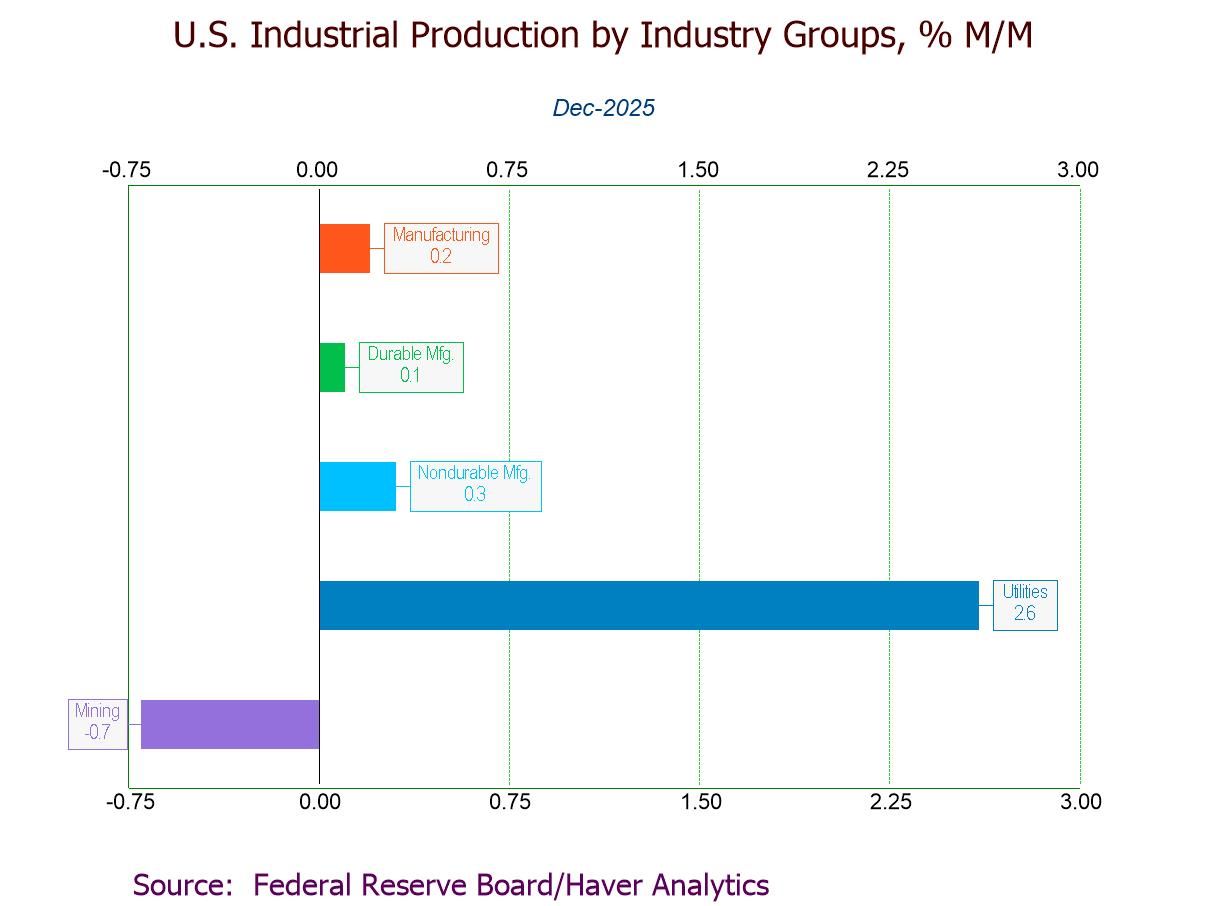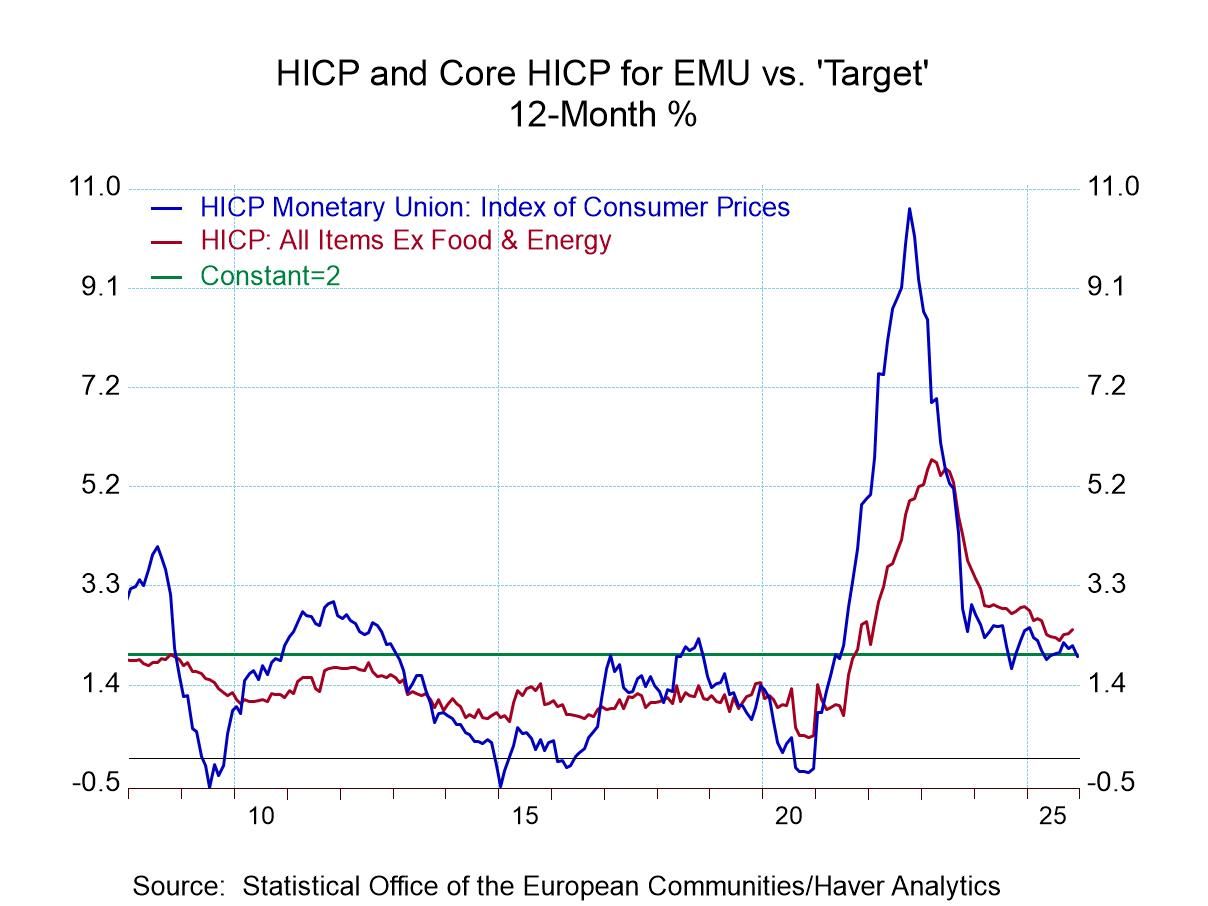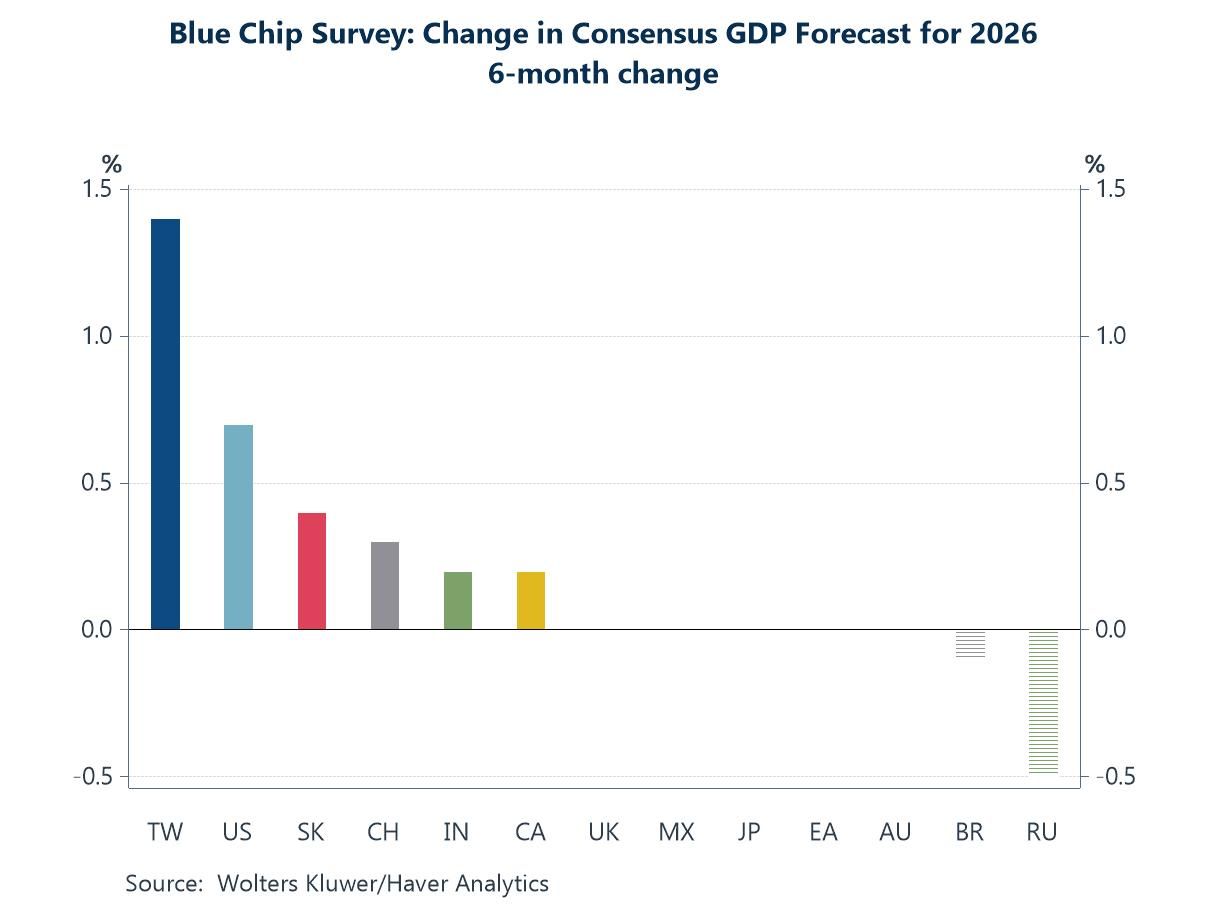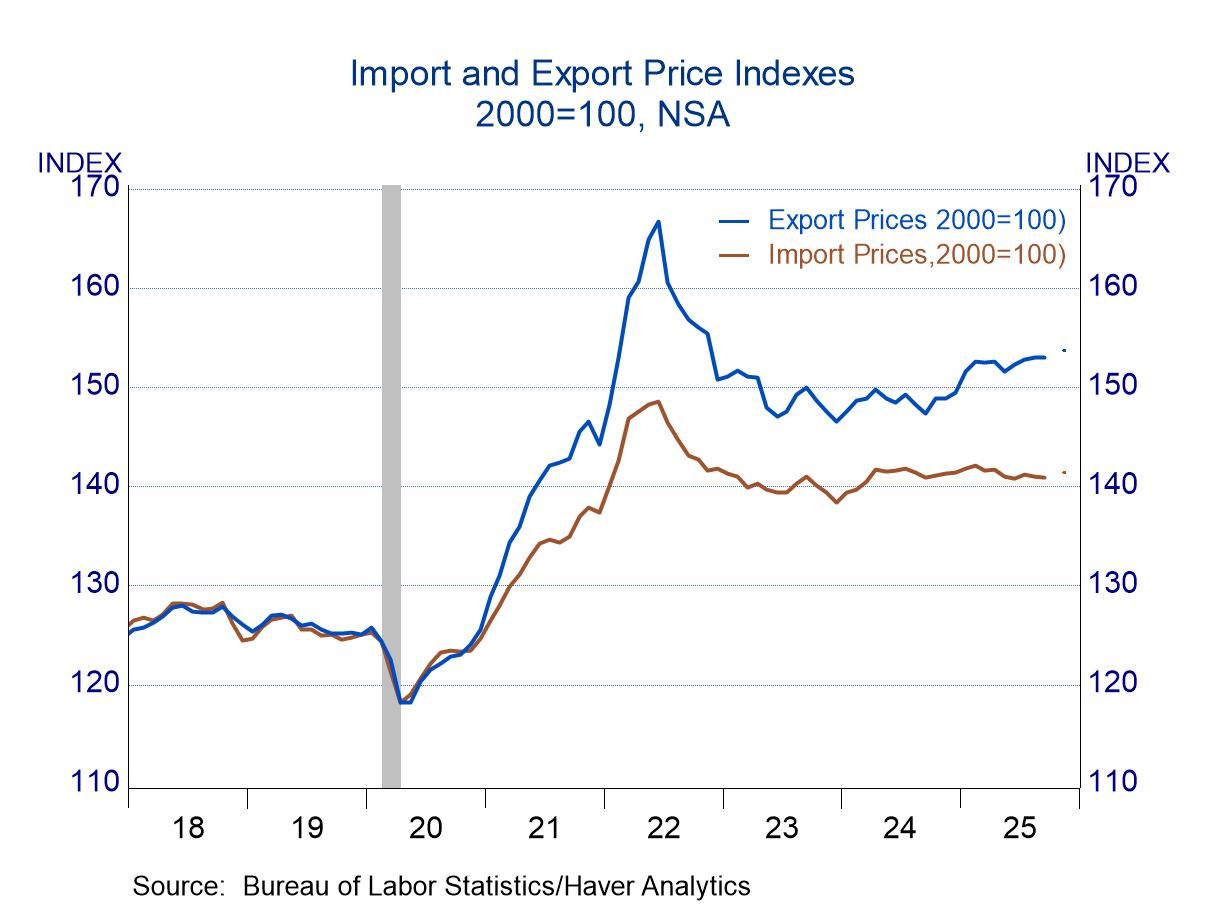 Global| Jul 08 2003
Global| Jul 08 2003Looks Like The Recession Ended Late in 2001
by:Tom Moeller
|in:Economy in Brief
Summary
The Business Cycle Dating Committee at the National Bureau of Economic Research (NBER) reported in June that "... the U.S. economy continues to experience growth in income and output but employment continues to decline. Because of the [...]
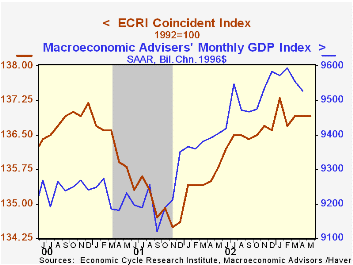
The Business Cycle Dating Committee at the National Bureau of Economic Research (NBER) reported in June that "... the U.S. economy continues to experience growth in income and output but employment continues to decline. Because of the divergent behavior of various indicators, the NBER's Business Cycle Dating Committee believes that additional time is needed before interpreting the movements of the economy over the past two years."
Despite the uncertainties, there is much to suggest that the most recent recession ended late in 2001. Its duration was roughly nine months.
For purposes of shading the economic cycles, Haver Analytics will commence ending the last recession in November 2001 in all of its charts. The fourth quarter of 2001 will be recession shaded since growth that quarter was a sub par 2.7% (AR). Our reasons for picking late 2001 as the cycle trough include:
- The Index of Coincident Indicators compiled by the Economic Cycle Research Institute (ECRI) touched bottom in November 2001. It has since risen 1.8% and has been 0.1% above its prior peak in December 2000.
- Monthly real GDP as compiled by Macroeconomic Advisers troughed in September 2001. It has since risen 4.5% and is 2.7% above its prior peak in February 2001.
- The Index of Coincident Indicators compiled by the Conference Board touched bottom in November 2001. It has since risen 0.8% but it has not yet surpassed its prior peak in December 2000.
Each of these monthly indicators recently has failed to exhibit much strength which is consistent with a US economy growing below its trend rate of about 3.5%. The National Activity Index from the Chicago Federal Reserve supports this point as it has consistently since early 2000. This indicator touched bottom in September 2001.
Below-trend economic growth is characterized by unused productive capacity. The recently rising unemployment rate and the falling capacity utilization rate indicate that economic slack is building. This pattern repeats that of the "jobless recovery" of 1992.
September 2001 was not chosen as the trough date for the last recession. The events of 9/11 greatly depressed economic activity but were unrelated to the normal business cycle.
Click here for "The NBER's Recession Dating Procedure."
Chain Store Sales Jumpby Tom Moeller July 8, 2003
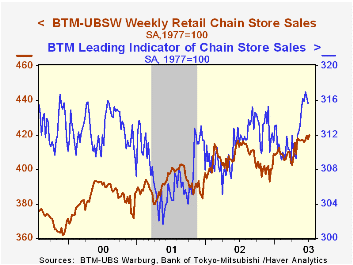
Chain store sales jumped 0.7% last week according to the BTM-UBSW survey. The rise recovered all of a 0.5% decline the week prior.
Sales started July 0.6% ahead of June which were barely changed from May.
During the last five years there has been a 61% correlation between the year-to-year percent change in chain store sales and the change in nonauto retail sales less gasoline.
The BTM leading indicator of chain store sales fell 0.1% in the last week of June. That was the fourth decline in the last five weeks for this indicator.
The BTM-UBSW retail chain-store sales index is constructed from the sales results reported by seven retailers: Dayton Hudson, Federated, Kmart, May, J.C. Penney, Sears and Wal-Mart.
| BTM-UBSW (SA, 1977=100) | 7/5/03 | 6/28/03 | Y/Y | 2002 | 2001 | 2000 |
|---|---|---|---|---|---|---|
| Total Weekly Retail Chain Store Sales | 420.1 | 417.3 | 1.1% | 3.6% | 2.1% | 3.4% |
Tom Moeller
AuthorMore in Author Profile »Prior to joining Haver Analytics in 2000, Mr. Moeller worked as the Economist at Chancellor Capital Management from 1985 to 1999. There, he developed comprehensive economic forecasts and interpreted economic data for equity and fixed income portfolio managers. Also at Chancellor, Mr. Moeller worked as an equity analyst and was responsible for researching and rating companies in the economically sensitive automobile and housing industries for investment in Chancellor’s equity portfolio. Prior to joining Chancellor, Mr. Moeller was an Economist at Citibank from 1979 to 1984. He also analyzed pricing behavior in the metals industry for the Council on Wage and Price Stability in Washington, D.C. In 1999, Mr. Moeller received the award for most accurate forecast from the Forecasters' Club of New York. From 1990 to 1992 he was President of the New York Association for Business Economists. Mr. Moeller earned an M.B.A. in Finance from Fordham University, where he graduated in 1987. He holds a Bachelor of Arts in Economics from George Washington University.



